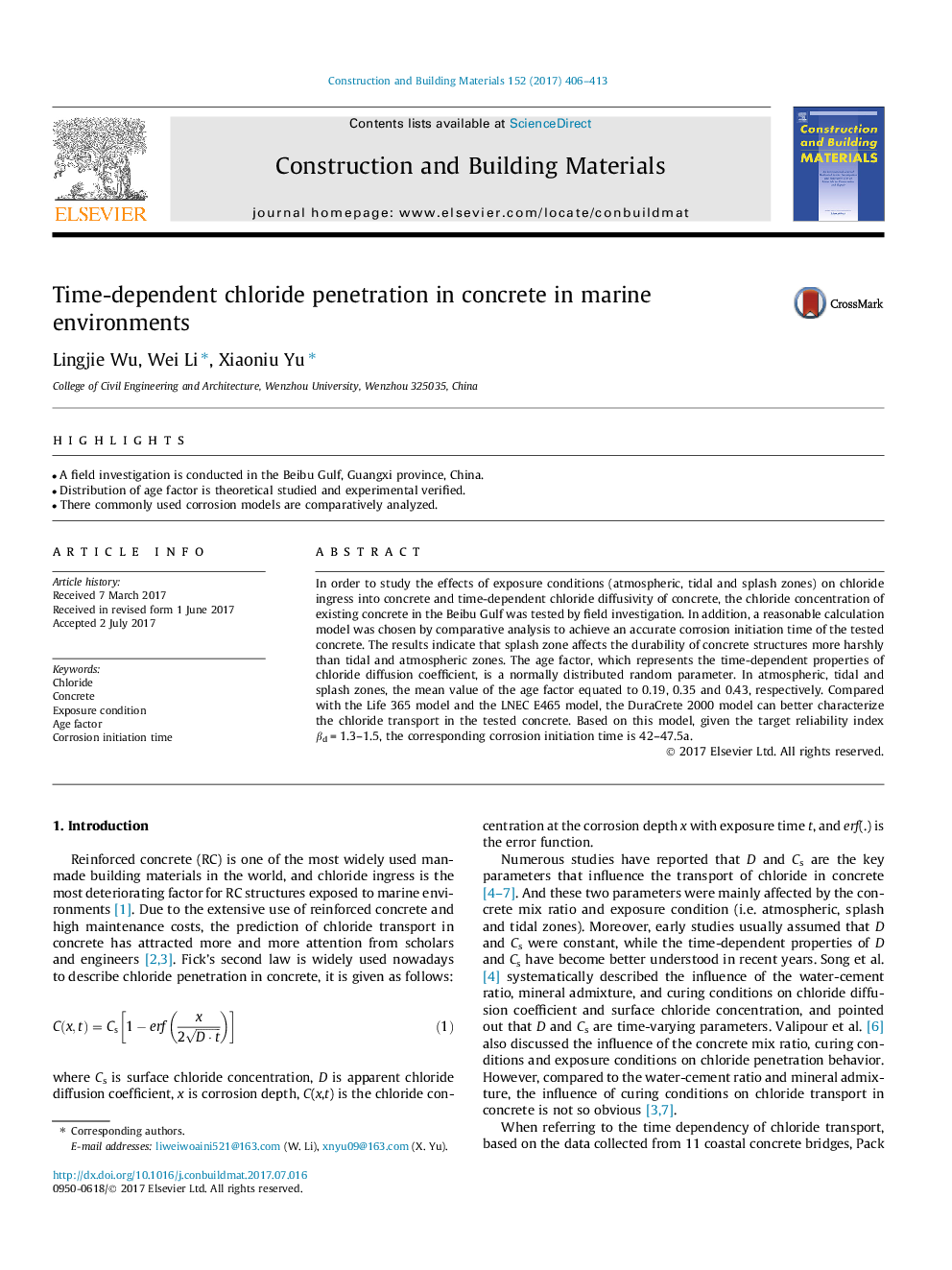| Article ID | Journal | Published Year | Pages | File Type |
|---|---|---|---|---|
| 4912779 | Construction and Building Materials | 2017 | 8 Pages |
Abstract
In order to study the effects of exposure conditions (atmospheric, tidal and splash zones) on chloride ingress into concrete and time-dependent chloride diffusivity of concrete, the chloride concentration of existing concrete in the Beibu Gulf was tested by field investigation. In addition, a reasonable calculation model was chosen by comparative analysis to achieve an accurate corrosion initiation time of the tested concrete. The results indicate that splash zone affects the durability of concrete structures more harshly than tidal and atmospheric zones. The age factor, which represents the time-dependent properties of chloride diffusion coefficient, is a normally distributed random parameter. In atmospheric, tidal and splash zones, the mean value of the age factor equated to 0.19, 0.35 and 0.43, respectively. Compared with the Life 365 model and the LNEC E465 model, the DuraCrete 2000 model can better characterize the chloride transport in the tested concrete. Based on this model, given the target reliability index βd = 1.3-1.5, the corresponding corrosion initiation time is 42-47.5a.
Keywords
Related Topics
Physical Sciences and Engineering
Engineering
Civil and Structural Engineering
Authors
Lingjie Wu, Wei Li, Xiaoniu Yu,
